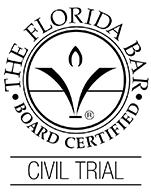In Florida, workers’ compensation provides financial relief to employees injured on the job or who developed an illness due to workplace conditions. Workers’ comp covers three categories of losses: medical expenses, lost wages, and death benefits. The compensation you receive from each type depends on the context of your claim.
Workers’ Compensation: Medical Expenses
After a severe workplace accident, it’s not uncommon to require medical care like surgery or physical therapy. Through a workers’ comp insurance carrier, your employer is responsible for medical expenses such as the following:
- Doctor’s visits
- Reimbursement for travel costs
- Hospital stays
- Diagnostic tests (e.g., MRI studies or ultrasound)
- Prosthetic implants
However, if you demonstrate that an expense stems from treating your injury, your employer and insurer must provide coverage.
Follow Your Doctor’s Orders
Your medical expense benefits depend on two factors:
- You agreed to visit insurer-approved providers.
- You follow through with the insurer-approved physician’s treatment plan.
At any point, if you visit an unapproved physician or skip appointments, the insurer could cut off your benefits. To maintain your benefits, consider doing the following:
- Ensure that your employer’s insurer specifies which doctors it has approved.
- Never skip appointments relevant to your workplace injuries.
- Complete prescriptions and follow through with your treatment plan.
- Inform your employer that you’re injured as soon as you can.
- If you visit the emergency room, provide the contact information of your employer and its insurer to hospital employees.
This system occasionally doesn’t work as planned. If you end up paying out of pocket for treatment, notify your insurance carrier or the Florida Department of Financial Services. Making this notification will ensure you receive adequate reimbursement for your expenses.
Workers’ Compensation: Lost Wages
Medical benefits, while significant, are only part of the puzzle. A severe injury can leave you unable to work for weeks, months, or even years. Fortunately, workers’ compensation provides reimbursement for your lost earnings. The amount of reimbursement you receive depends on which category of disability you fall into:
- Temporary Total Disability: You cannot work for a set period.
- Temporary Partial Disability: Your doctor allows you to work at a reduced capacity.
- Permanent Total Disability: You are fully disabled and will never work again.
Temporary Total Disability
Temporary total disability provides 66 2/3% of your pre-injury wages—not exceeding $1,197 a week in 2023. Each year, the maximum weekly limit increases to account for inflation.
You cannot receive temporary total disability benefits for your first seven days off work unless your disability lasts more than 21 days. If your injury lasts more than 21 days, you will receive retroactive benefits for your first seven days of injury. These benefits last 104 weeks, at which point your case will be reviewed. If you still cannot work, you may be assigned a permanent total disability rating.
There’s one caveat to the 66 2/3% rule in temporary total disability cases. If you’ve suffered a severe injury, you could receive 80% of your previous wages for up to six months. According to Florida law, examples of severe injury include:
- Amputation of a limb
- Blindness
- Partial or total paraplegia
Temporary Partial Disability
Temporary partial disability applies to workers who can still work at a reduced capacity. More specifically, those injured and earning less than 80% of their pre-injury wages could qualify for temporary partial disability.
Calculating temporary partial disability is complicated and involves multiple steps. In short, you’ll receive approximately the difference between your current earnings and 80% of your pre-injury earnings. Temporary partial disability benefits are available for 104 weeks.
Permanent Total Disability
Like temporary total disability benefits, permanent total disability reimburses 66 2/3% of your pre-injury wages. These benefits last until the age of 75 unless you don’t qualify for Social Security coverage. In that case, you could continue to receive permanent total disability benefits beyond age 75.
Eligibility for permanent total disability is strict. To qualify, you must be unable to work in any capacity, including sedentary employment. Conditions that can result in permanent total disability include:
- Severe brain injuries that result in significant motor malfunctions
- Total blindness
- Severe burns that cover a large portion of your body
- Spinal cord injuries that cause paralysis
- Amputation of a prominent appendage, like an arm or leg
Workers’ Compensation: Death Benefits
You might qualify for death benefits if you lost a loved one in a workplace accident. These benefits apply to surviving family members, including:
- Spouses
- Children
- Parents
- Siblings
For example, spousal death benefits cover the following:
- Lost wages that your spouse would have provided to your family if they hadn’t passed away
- Funeral expenses up to $7,500
- Educational support for the surviving spouse
The amount of lost wage benefits available depends on your relationship with the decedent. However, these wage-replacement benefits cannot exceed $150,000.
Speak With a Florida Workers’ Compensation Lawyer Today
Workers’ compensation covers medical expenses and lost wages. However, the specifics of your case could affect how much you receive. The workers’ compensation lawyers at Dismuke Law can answer your questions and clarify what benefits you might be eligible to recover. Similarly, if your employer denied your workers’ compensation claim, we could stand up to insurers on your behalf.
Contact our offices today for a no-obligation case evaluation.


![cftla-member[2]](https://www.1800askdave.com/wp-content/uploads/2022/03/cftla-member2.png)
![cftla-member[3]](https://www.1800askdave.com/wp-content/uploads/2022/03/cftla-member3.png)










